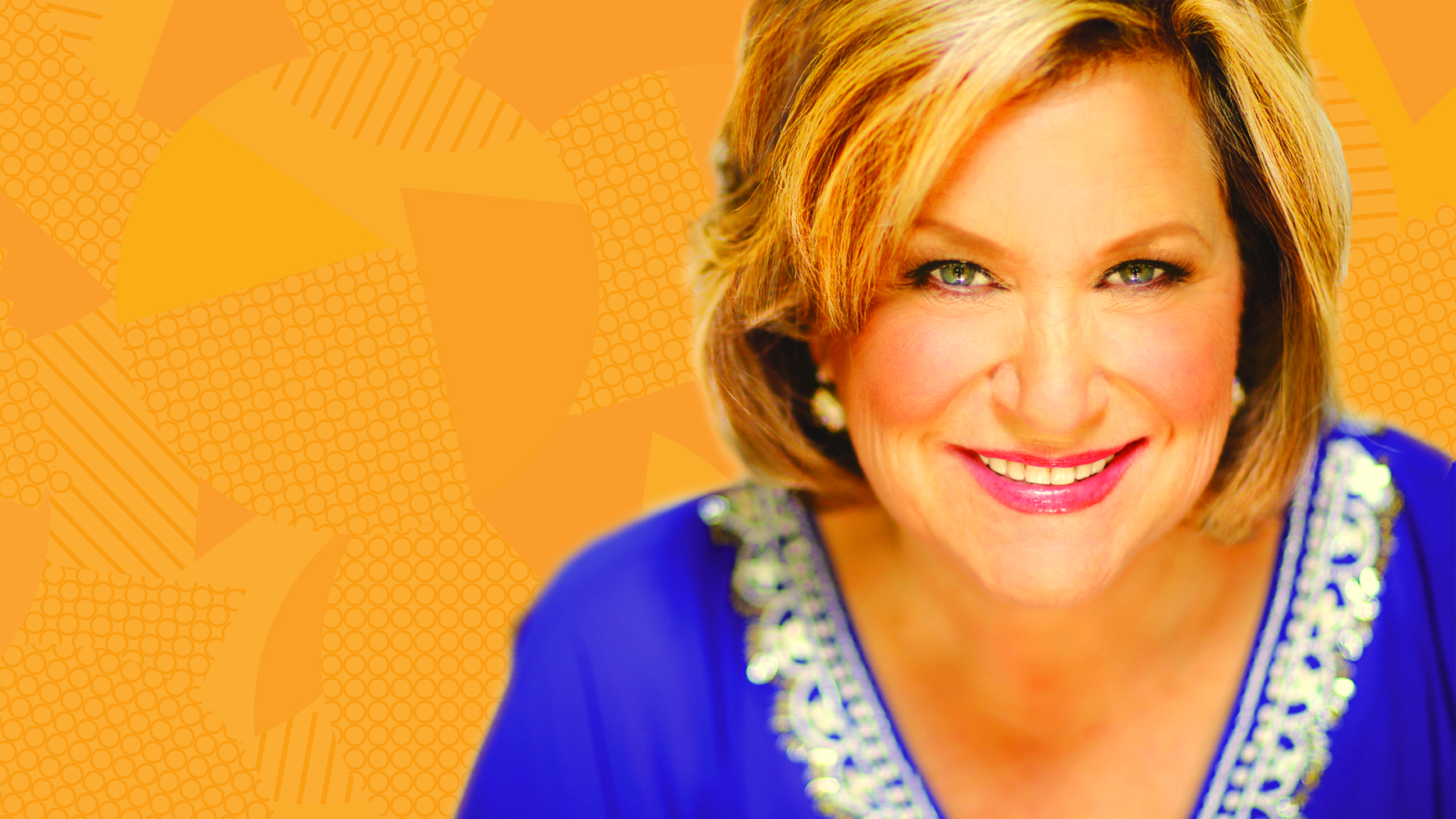Through the 1980s and early 1990s, Sandi Patty’s music was a staple on Christian radio stations. Songs like “We Shall Behold Him,” “Love In Any Language,” and “More Than Wonderful” led to a packed touring schedule, appearances on network television, five Grammys, and 40 Dove Awards.
However, behind the confident public persona was a woman struggling to make sense of childhood sexual abuse, body image issues, and plummeting self-worth. Her marriage was crumbling, and she engaged in an extramarital affair that later stalled out her soaring music career. In the midst of this upheaval, Patty joined a Bible Study Fellowship (BSF) group at her home church in Indiana.
Her new book, The Voice, details the dramatic change that came through studying Scripture in community, being mentored by her BSF leader, and seeking counseling. Patty spoke recently with CT about the role that BSF, in particular, played in rebuilding her life.
When did you first encounter BSF?
I knew about BSF for a long time—a friend of my parents was a BSF teaching leader in Oklahoma City. It was an easy decision for me to join BSF, because I was already familiar with it. I got to the point where I knew I had to do something if I was going to grow in the Lord. Being on the road [for music tours] is real, but it is not the real world. I needed to surround myself with other women who wanted to be grounded in God’s Word.
If I was touring, I would have the bus bring me back home so I could go to BSF on Wednesday mornings, then get back on the bus and head to my next concert. It was that important to me.
The committed study required by BSF had some unexpected effects on your life. What were those points of impact?
The first one was discovering a safe space where I could be honest. I will never forget going to BSF for the first time, being assigned to my discussion group, and meeting Bev, my discussion group leader. As everyone in the small group began to share, I was so knocked out by the level of honesty. Their honesty struck me because, in the home in which I grew up, I never saw my parents argue with each other. I understand now that they chose to do that away from us kids, but the message I took away from my childhood is that people don’t disagree.
During my first discussion group, someone said, “I look forward to coming to BSF every week because being here helps me not want to kick my kids out the house.” I don’t think I gasped out loud, but I thought, You can’t say that! Everyone else laughed and said, “Yeah, girl, I get you on that.” I’d never before been in a safe place of grace where I could be real and honest.
The second effect that BSF had on my life came as I began to put God’s Word in my heart. I started to really believe his promises. When you put truth in your heart, the lies that have resided there get uncomfortable and have to find another place to go. There is not room for both.
Every week, Bev called me to check in, and I began to realize that she was a safe place for me. So I started to share more and more of my own story. Because the truth of the Bible was taking root, and the lies I’d believed for so long were rearing their ugly heads, BSF and those weekly phone calls with Bev began a transformation in my life.
You write about discovering some long-buried issues and at the same time, discovering God’s affection for you. One is more of an excavation project and the other more of an embrace. How were the two related?
Those two experiences had a very symbiotic relationship. One of my favorite Scriptures is John 8:31–32: “To the Jews who had believed him, Jesus said, ‘If you hold to my teaching, you are really my disciples. Then you will know the truth, and the truth will set you free.’” Jesus is talking to those who say they follow him. But he goes on to explain, “If you continue in my Word, that’s what makes you my disciple. You will know the truth and the truth will set you free.” I believe wholeheartedly that the Word of God is the truth.
I also believe healing comes in our lives as we share parts of our stories that are raw and rough. Either someone has caused us pain or our sinful choices have caused us pain. When we speak the truth of our pain out loud and we lay it at the foot of the Cross, God is in the midst of it. Once I began to understand the process of dealing with my own pain, offering it to Jesus—by laying it at the foot of the Cross—is how I opened myself up to God’s embrace.
I can look back and see God’s faithfulness, which tells me that in the years to come, he will continue to be faithful.
Tell us about Bev, your BSF discussion leader. She was willing to go beyond your public persona in order to ask you some hard questions.
I learned so much from Bev. I began my relationship with her by listening to the kinds of things she was willing to offer and share in our discussion group setting. She modeled vulnerability in her life for the rest of us. I recognized that she was farther down the road than me—she’d done the work to process rough areas in her life and had perspective.
In addition, she was able to understand that fame and notoriety could be very isolating. Sometimes I felt all alone in a stadium full of people. After I got to know Bev, I learned that God had laid me on her heart years before. When I came to BSF, I had no idea she’d been praying for me.
As a mentor, you can see people who are headed off a cliff and begin to pray for them: “Lord, if I can offer something to them, please allow our paths to cross.” And then when those paths cross, you gently pursue that person. Bev pursued me with prayer and then additionally with phone calls, questions, and notes of encouragement. This eventually convinced me that she was sincere in her care for me, and I began to trust her enough to take the leap into deeper relationship.
Eventually, Bev encouraged you to seek professional counseling. How did that happen?
As our mentor/mentee relationship moved forward, I began to realize that I couldn’t carry the secret about my childhood sexual abuse any longer. I hadn’t told my parents. I hadn’t shared it with anyone. Because of a couple of things that had come up during BSF discussion group, I felt that Bev would be a safe person. I asked if we could meet alone, and I told her my story.
Over the next few weeks, whenever we talked by phone, she tailored her questions specifically around this issue. She recognized that I needed more guidance than she could give me and recommended a counselor in the Indianapolis area, where I was living at the time. This counselor’s specialty was helping adults come to terms with childhood sexual abuse.
How do you see churches journeying with others who come from broken backgrounds?
I see a change in trajectory in many churches. They’re taking the position that they may not know what to do at all times, but they’re going to start doing something, like opening their doors to Celebrate Recovery [a Christian-based addiction support program]. Other churches are offering support groups for widows and widowers. It’s a way a church tells everyone, “We understand that grief happens. Let the church come alongside you and walk through this.” The church sends a signal that says, “Come. You’re welcome.”
We are blessed in our church to have a senior pastor who models to the rest of us that life is not always perfect, that parenting is hard, marriage is hard. They’re worth it, but they can be difficult nonetheless. I see other churches, too, beginning to make space for people who are going through a hard time in their lives. As a church, we have to understand that we can still love and walk with someone, but that doesn’t mean we’re agreeing with something they’ve done. We want to be part of the healing process, but healing belongs to God.
Are you still involved in BSF today?
I am not. When I was involved, they had five years of material, and I did all five years. I know they’ve changed things since then. I’ve wondered what the BSF world is up to these days. It was so impactful in my life at the time that I was involved.
Where do you seek and find discipleship at this stage of your life?
My husband and I belong to a church in Oklahoma City. My husband’s been on staff as one of the pastors for the last eight years, and I’ve served as artist-in-residence for the last year. Every Sunday night, we meet with a community group. They’re people mostly our age plus one young couple who loves hanging out with us “old people.” We’ll do book studies or study Scripture together, so we can continue to grow spiritually and also have a support network.
Your book highlights the contrast between the “big voice” the public knew and the voicelessness you experienced in your personal life, particularly in your youth. So many women like you begin to discover their own voices as they move into midlife. What might you say to encourage these sisters in Christ?
First, you need a champion in your life who is going to reflect back to you that, “Yes, what you said was valid.” You won’t know who those people are at first. If you listen and notice, they’re the ones who are willing to share some not-so-pretty parts of their stories. Ask to buy one of them a cup of coffee; get together and let them know that what they’ve shared resonates with you. At the beginning of your journey, you may not want to use your voice with just anyone, because not everyone knows what to do with it. But learning who might be safe is a good place to start.
If you can’t find someone, journaling is a great place to begin. Write down your story—every honest, hardcore word. The psalms are a perfect example of what journaling should look like. David holds nothing back. One minute he says, “God, I can’t even feel you.” That honesty allows him to get to those places where he can say, “You are my rock. You are my refuge. You sing over me.” Journaling can do the same for each one of us.









